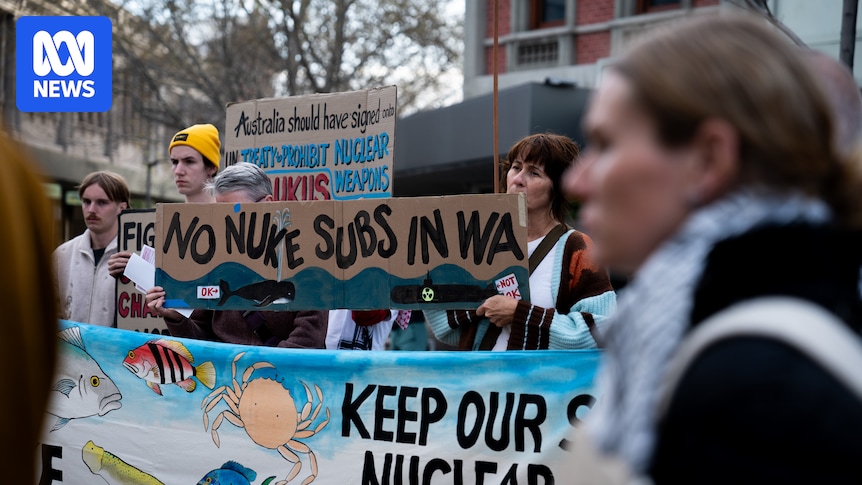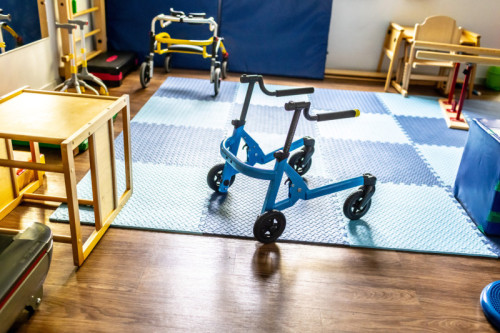
Rigour, precision, and safety—these are the values the Australian Submarine Agency (ASA) is urging Australians to embrace as it embarks on a mission to arm the nation with nuclear submarines. In what it describes as its initial steps towards gaining public trust, the ASA has sent a delegation of uniformed naval officers and representatives to Fremantle, Western Australia, to address community concerns.
The meeting, held on Thursday night, took place in the port city adjacent to the future Henderson Defence Precinct and HMAS Stirling naval base, locations earmarked by the federal government for housing and maintaining nuclear submarines. While the event was billed as an “information session,” a protest outside the town hall set the tone for the evening’s discussions.
Community Concerns and Government Assurance
The ASA’s AUKUS advocate, Paul Myler, emphasized the safety credentials of the US and UK’s seven decades of nuclear experience to reassure the crowd. “We don’t get to automatically rely on that reputation. We have to earn that part, that legacy, and build our trust with our communities—and that’s what we’re starting here,” he stated.
However, the delegates clarified that they were not there to sell AUKUS. “That decision has been made by a succession of Australian governments,” they noted before opening the floor to questions. The crowd responded with laughter when invited to a “fun day” to learn more about nuclear technology.
WA Greens MLC Sophie McNeill, present at the session, expressed alarm at the disconnect between the government and local communities. “This event really highlighted the deep level of community concern and opposition to AUKUS… The officials did all they could to avoid answering the hard questions,” she remarked.
Safety, Sovereignty, and Stewardship
Safety and sovereignty were the primary topics of concern for attendees. One local questioned the UK’s historical nuclear testing record, pointing to contamination at the Monte Bello Islands and other sites. In response, officials reiterated, “Nuclear weapons and nuclear testing are a completely separate issue… Australia’s position on that is very, very clear.”
The ASA introduced the concept of “stewardship,” describing it as the responsible management of nuclear material. This includes planning for nuclear waste management, with low-level waste temporarily stored at HMAS Stirling. “The technical solutions can keep that waste safe for many years, decades I believe as a contingency, [but] we do expect the waste to be able to be moved much sooner,” a spokesperson explained.
As of now, there are no plans for long-term storage or disposal of high-level nuclear waste, which the ASA claims will not be needed until at least 2050. The public also questioned who would command Australia’s nuclear-powered submarines once operational. “I get asked a lot of hard questions. That one has a simple answer,” ASA director-general Vice Admiral Jonathan Mead responded, though the crowd remained skeptical.
Debate Over AUKUS Intentions
The session grew heated when a local criticized AUKUS as an “appalling waste” of taxpayer dollars, suggesting it positioned Australia as a pawn in geopolitical tensions with China. Mr. Myler countered, insisting the initiative was about defense and enhancing Australia’s “strike capability” for national protection. “I can’t convince you, but I can only give you my own insight,” he said. “Our sovereignty is absolutely at the core of everything we do.”
The discussion also touched on the 2023 incident involving Rio Tinto’s loss of a radioactive capsule in Western Australia. A local highlighted the minimal penalties for such incidents, to which Mr. Myler responded by praising the coordinated response that resolved the issue. “It proved that West Australians had their act together, knew how to do this, knew how to respond,” he commented.
Building Trust Amid Skepticism
The ASA’s efforts to earn public trust were underscored by Cassandra Casey, a social licence adviser from the Australian Nuclear Science and Technology Organisation (ANSTO), who cited the community’s acceptance of a nuclear facility in Engadine, New South Wales. “The community, which is also my community, has grown up around ANSTO, and today the nearest homes in Engadine are just 820 metres… from that facility,” she noted.
Despite these assurances, the reaction from attendees suggested that few minds were changed. Mr. Myler acknowledged the challenge, recognizing the need for ongoing dialogue and transparency as the ASA moves forward with its nuclear ambitions.






